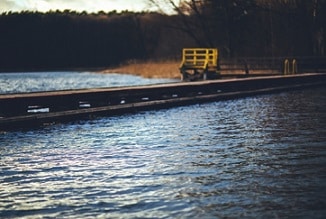 The planet is 70% water; the human body is 70% water. The planet needs water to survive and thrive; the human body needs water to remain healthy and to function at its peak. Some think that gold, diamonds or oil are the most precious commodities on earth, but the truth is that it water is more precious and vital than any of those.
The planet is 70% water; the human body is 70% water. The planet needs water to survive and thrive; the human body needs water to remain healthy and to function at its peak. Some think that gold, diamonds or oil are the most precious commodities on earth, but the truth is that it water is more precious and vital than any of those.
Unfortunately, because of the way we have treated this earth of ours and global warming, water is becoming scarcer than ever in many areas while other areas are being flooded. There are fears that if things continue in this way, there will soon be many geopolitical conflicts.
The late Nobel Laureate Richard Smalley, in his 2003 lecture at Rice University’s Energy & Nanotechnology Conference highlighting Humanity’s Top 10 Problems for the next 50 years, listed them in the following order:
1. Energy
2. Water
3. Food
4. Environment
5. Poverty
6. Terrorism and war
7. Disease
8. Education
9. Democracy
10. Population
Energy and water top the list because resolving any problems with them will automatically alleviate many subsequent problems. In other words, ensuring that there is an abundance of reliable, clean, affordable energy will ensure that there is more than sufficient clean, potable water, which will in turn enable food production and environmental protection, and so on and so forth.
The 20th century saw many conflicts over energy and oil, which have subsided with the advent of solar power, energy efficiency and communally distributed generation. The 21st century is set to be one of conflicts over access to potable water.
The problem is that there is no alternative as there was with energy. Another problem is the fact that water is so intertwined with so many aspects of life:
- Energy Production requires water for fracturing shale and for cooling power plants;
- Agriculture requires water for irrigation;
- Industry uses trillions of litres of water for various purposes;
- Metropoles require water in abundance for various uses, including drinking water, personal hygiene, gardening, and entertainment and leisure.
Water demands are growing due to expanding populations at the same time that climate change is intensifying both floods and droughts and altering where there will be water and where not. This could mean that whole communities could start moving around to where there is an abundant supply of potable water.
There are various solutions as to how to solve the world’s water problem; some of them involve huge expenses such as the construction of huge desalination plants, hydroelectric dams, or cross-continent water-transfer aqueducts; some are small-scale, such as installing micro water-harvesters that condense water vapour out of fresh air.
Only recently have countries like Israel made a 1961 statement by President John F. Kennedy, If we could ever competitively”at a cheap rate”get freshwater from saltwater, it would be in the long-range interest of humanity and would really dwarf any other scientific accomplishments a reality.
We have a lot of water on this planet, but only around 2.5% of it is freshwater. Continuing the research into desalination of sea water on a large scale will go a long way to solve the world’s water problem and ensure that we all have sufficient drinking water and water for personal hygiene, recreation, food production and preparation and everything else for a long time to come.
Bottle water coolers London and mains fed water coolers from Living-water.
Source:





